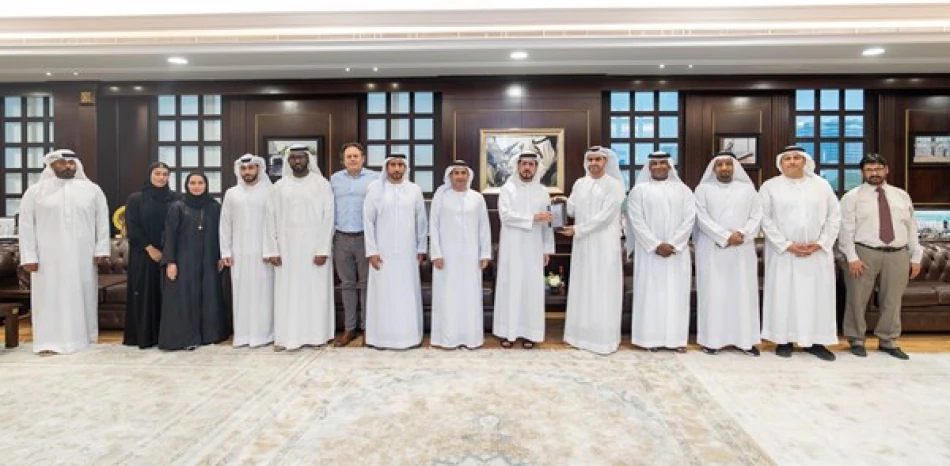
Dubai Electricity Wins Global Platts Infrastructure Award for Energy Leadership
Dubai's Solar Megaproject Claims Global Energy Infrastructure Prize, Signaling Middle East's Renewable Dominance
Dubai Electricity and Water Authority (DEWA) has secured the prestigious Energy Infrastructure Award at the 2024 Platts Global Energy Awards for its Mohammed bin Rashid Al Maktoum Solar Park, becoming the first utility in the Middle East and North Africa to win this recognition. The victory over 1,000 competing companies underscores the Gulf's accelerating transformation into a renewable energy powerhouse and challenges traditional perceptions of oil-dependent economies leading the clean energy transition.
The "Energy Oscars" Recognition
The Platts Global Energy Awards, established by S&P Global Commodity Insights and often dubbed the "Oscars of the energy world," represent the industry's most coveted recognition since 1999. The awards span sustainability, innovation, energy infrastructure, and technology categories, attracting nominations from energy companies, innovators, and industry leaders worldwide.
DEWA's triumph signals a watershed moment for Middle Eastern utilities, traditionally overshadowed by European and North American renewable energy pioneers. This recognition validates the region's massive investments in solar infrastructure and positions Dubai as a credible competitor to established renewable energy hubs like Denmark, Germany, and California.
A Solar Complex of Unprecedented Scale
Current Capacity and Global Standing
The Mohammed bin Rashid Al Maktoum Solar Park currently operates at 3,860 megawatts capacity, utilizing both photovoltaic panels and concentrated solar power technologies. This makes it the world's largest single-site solar complex under the Independent Power Producer model—a financing structure that has proven crucial for scaling renewable projects in emerging markets.
Ambitious Expansion Plans
DEWA plans to expand the complex's capacity to 7,260 megawatts by 2030, enough to power approximately 5.8 million homes. This expansion timeline aligns with Dubai's Clean Energy Strategy 2050, which aims to generate 100% of the emirate's energy capacity from clean sources by mid-century.
The scale dwarfs many national renewable energy programs. For comparison, the entire solar capacity of the United Kingdom stands at roughly 14,000 megawatts, making Dubai's single project equivalent to half of Britain's total solar infrastructure.
Strategic Implications for Energy Markets
Investor Confidence in Middle Eastern Renewables
This recognition should bolster investor confidence in Middle Eastern renewable energy projects, historically viewed as riskier investments compared to similar projects in developed markets. The award validates the technical execution and commercial viability of large-scale solar projects in desert environments, potentially attracting more international capital to the region.
The Independent Power Producer model employed at the solar park has already demonstrated cost competitiveness, with recent phases achieving some of the world's lowest solar tariffs. This success story provides a replicable template for other Gulf states pursuing economic diversification.
Geopolitical Energy Realignment
Dubai's solar leadership represents a broader geopolitical shift where traditional oil exporters are positioning themselves as future renewable energy exporters. The UAE's strategy mirrors similar initiatives in Saudi Arabia's NEOM project and Qatar's solar ambitions, suggesting coordinated regional efforts to maintain energy relevance in a post-carbon world.
This transition could reshape global energy trade patterns, with Middle Eastern countries potentially exporting clean electricity and green hydrogen instead of hydrocarbons within decades.
Technological and Economic Impact
The project's success demonstrates that desert solar installations can achieve exceptional efficiency rates while providing grid stability through hybrid photovoltaic and concentrated solar power technologies. This technological validation is crucial for similar projects planned across Africa, Australia, and the southwestern United States.
Moreover, the project's ability to compete internationally while supporting Dubai's rapid urban and population growth proves that renewable energy can scale alongside economic expansion—a critical consideration for developing economies hesitant to embrace clean energy transitions.
The award positions DEWA as a potential technology exporter and project developer beyond the UAE, opening new revenue streams and reinforcing Dubai's role as a regional business hub extending into the energy sector.
Most Viewed News

 Layla Al Mansoori
Layla Al Mansoori






